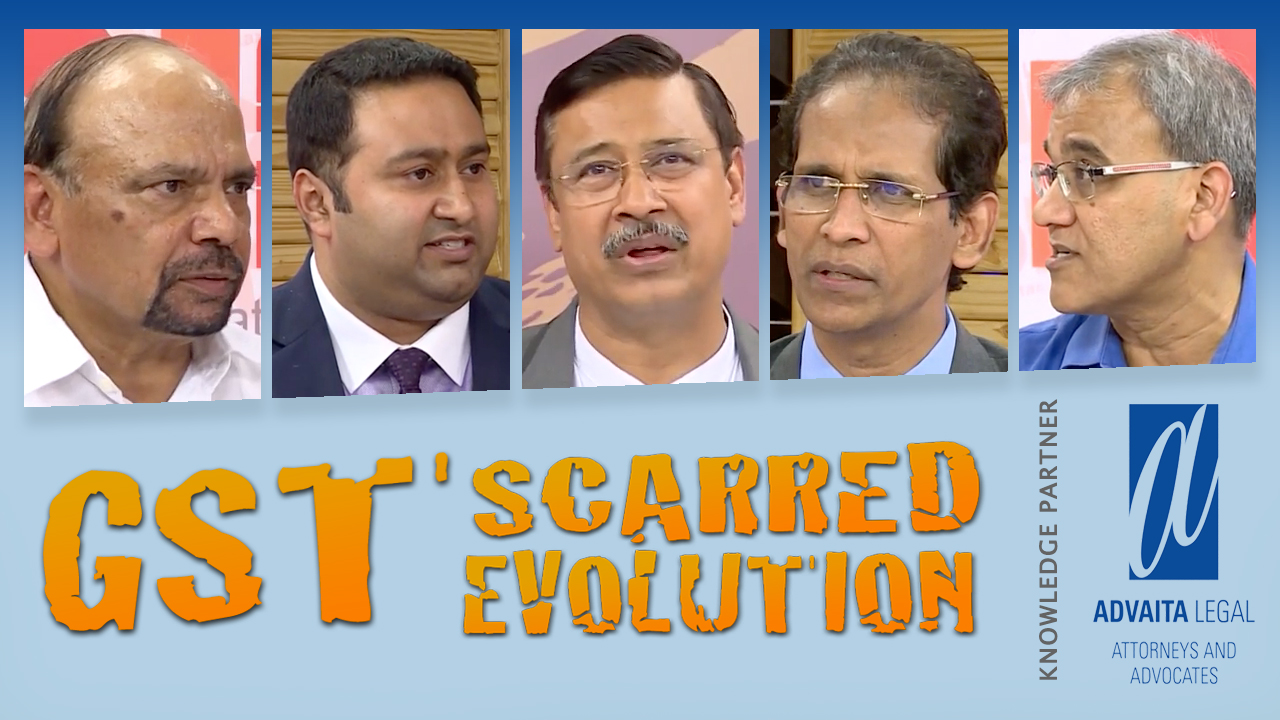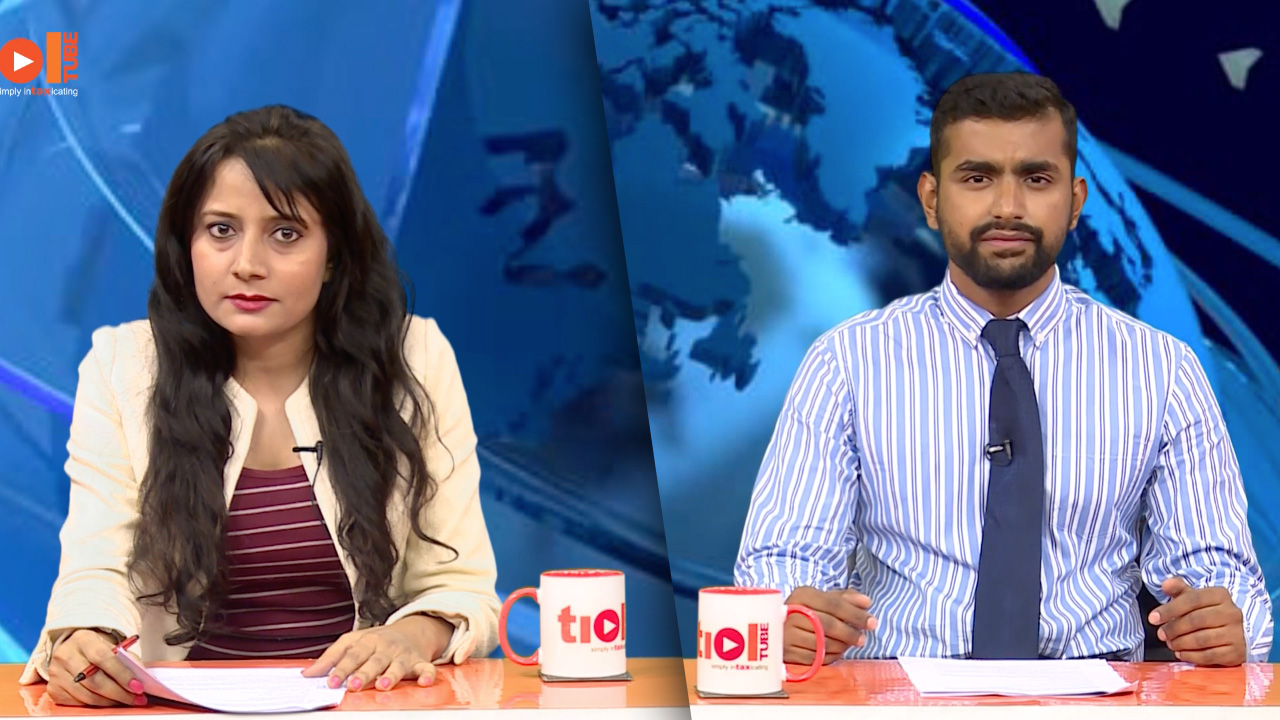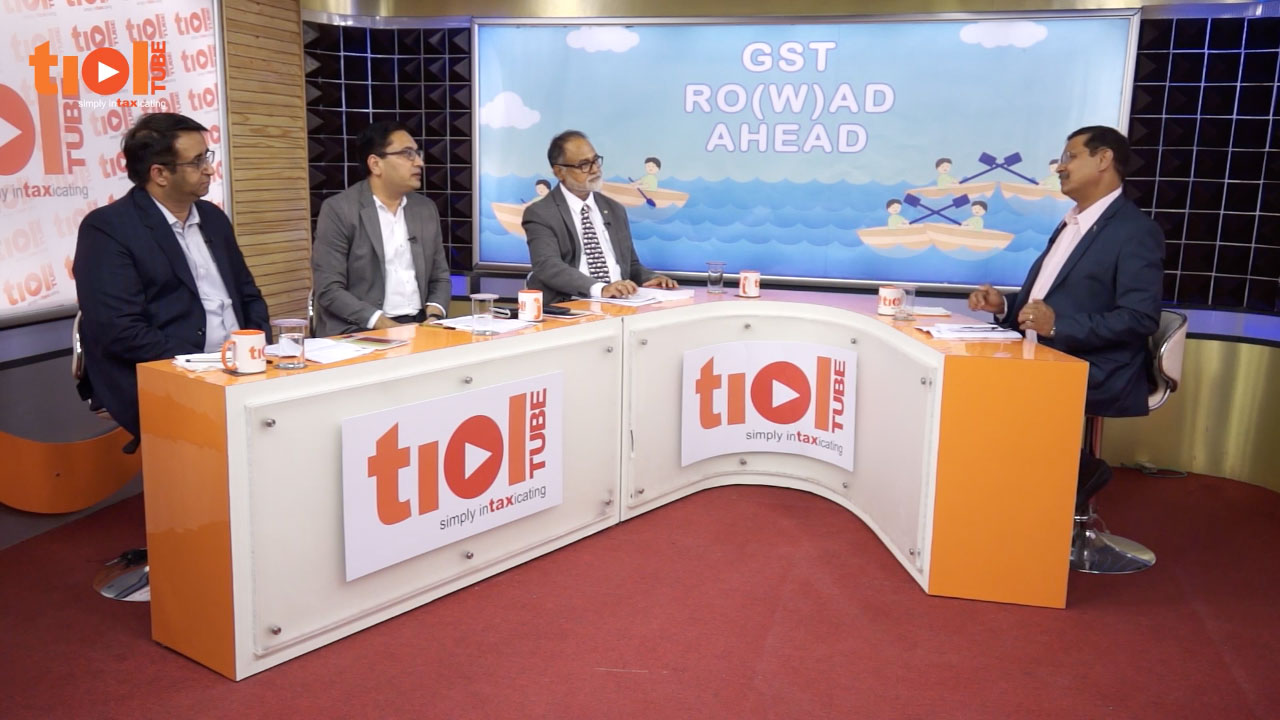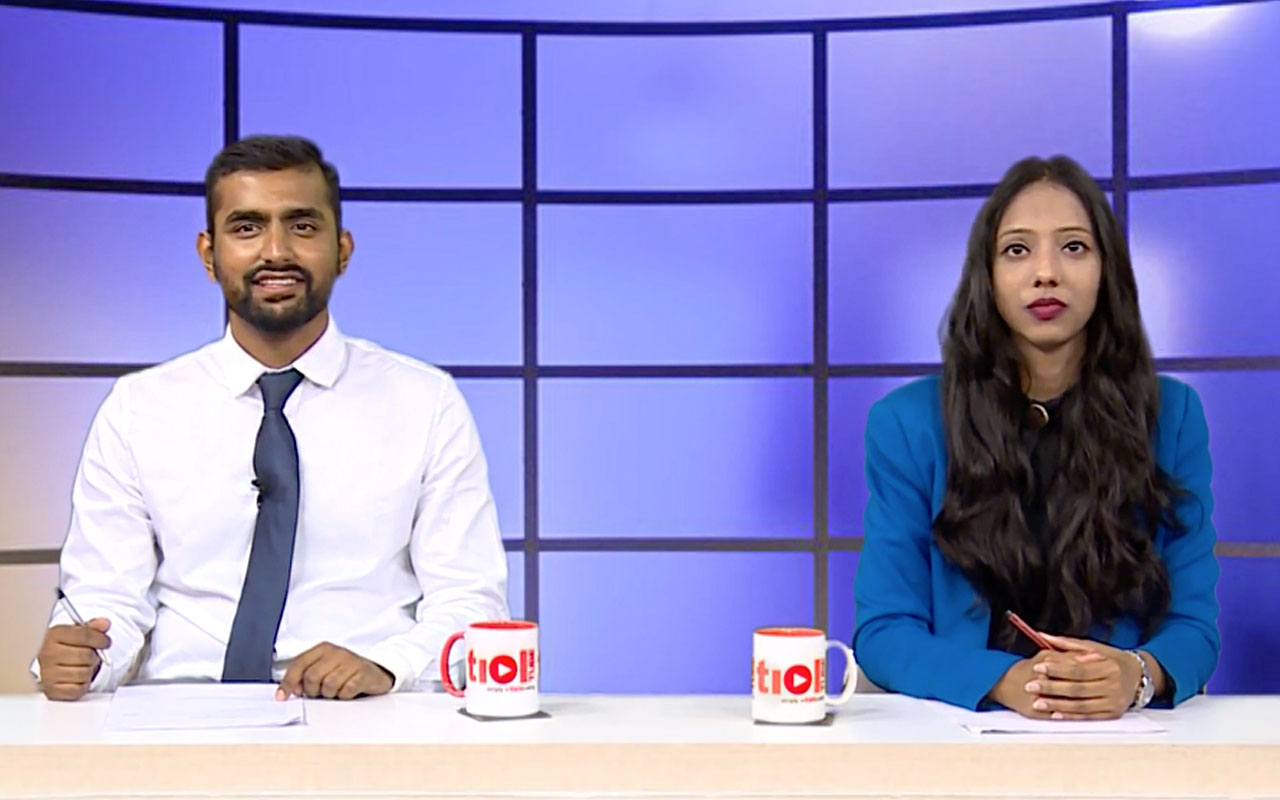SERVICE TAX
2018-TIOL-3239-CESTAT-BANG
Akay Industries Ltd Vs CC CE AND ST
ST - The assessee company is engaged in providing Business Support Service by evaluating & locating prospective buyers - It receives some amount of remuneration for the same - Upon audit, the Department claimed that service tax was payable under 'Management Consultant' - When the assessee claimed to have not provided any Management Consultance Service, the Department alleged that the assessee's activities were classifiable under 'Business Auxiliary Service' - The Commr.(A) later gave partial relief to the assessee, whereas the Tribunal subsequently dismissed the appeal - Hence the present rectification application was filed on grounds that the Tribunal did not consider all submissions & decisions relied upon by it.
Held: There is no mistake apparent on the face of record which needs to be corrected through the present application - Besides, the scope of rectification of mistake is limited to correction of mistakes and cannot be extended to review the entire case on merits - In the present case, what the assessee seeks by means of this application, amounts to review of the Tribunal's decision & so is beyond the scope of the ROM application - Hence the present application lacks merit: CESTAT (Para 1,5)
- Assessee's application allowed: BANGALORE CESTAT
2018-TIOL-3238-CESTAT-BANG
BSNL Vs CCE, C & ST
ST - On verification of records of assessee, it was reported that they had short paid service tax amounting to Rs.2,50,21,816/- for certain months during period from 10/2002 to 02/2005 - The assessee claimed that they paid excess service tax amounting to Rs.1,58,29,182/- during the period which they adjusted against service tax due from them and the remaining shortage of Rs.91,92,634/- was paid on 31/03/2005 - Such adjustment made by assessee is not proper in terms of Rule 6 of STR, 1994 thereby resulting in short payment of service tax of Rs. 1,58,29,182/- - After following the due process, Commissioner has confirmed the demand on the ground that Rule 6(3) of STR bars the assessee from making adjustment of excess payment of service tax made to the Government unless assessee proves with the aid of documentary evidences that excess amount has been returned to person from whom the same was collected - Provisions of Rule 6(3) of the STR, 1994 are not applicable in the present case whereas the provisions of Rule 6(4A) and 6(4B) are applicable - Further, though the provisions of Rule 6(4A) and 6(4B) are inserted subsequently but they are applicable retrospectively considering the fact that the assessee is a public sector undertaking and has paid the entire amount of service tax by way of adjustment of excess payment of service tax towards short payment and there is no further liability on the part of assessee - Tribunal do not find any intent to evade on the part of assessee - Impugned order is not sustainable in law and the same is set aside: CESTAT
- Appeal allowed: BANGALORE CESTAT
CENTRAL EXCISE
2018-TIOL-3237-CESTAT-MUM
CCE Vs Manmade Spinner India Ltd
CX - Commissioner(A) had directed payment of refund in cash of pre-deposit made by assessee by debit in CENVAT credit account - Revenue had appealed before CESTAT and the said order of Commissioner(A) was set aside by Tribunal by observing that cash refund can be given only in a situation where either the assessee has paid the amount in cash or refund is against export of goods - In respect of this order dated 18.11.2016 - 2016-TIOL-3329-CESTAT-MUM, application filed by assessee for restoration of appeal (ROA) filed by the department.
Held: Although the party was not present at the time of hearing of the appeal, the order was passed on merits and the Tribunal has considered all the relevant facts for taking a view in the matter - since that order is on merits, application now filed for ROA is not maintainable - Application dismissed: CESTAT [para 1, 2]
- Application dismissed: MUMBAI CESTAT
2018-TIOL-3236-CESTAT-MUM
Mohit Ispat Ltd Vs CCE
CX - Application filed seeking rectification of mistake in final order on the ground that the Tribunal had not recorded their submissions that simultaneous penalty under rules 15(1) and 15(2) of CCR, 2004 read with s.11AC of the CEA, 1944 cannot be imposed; that since no findings had ben recorded in the order, therefore, same may be recalled and heard again.
Held: Tribunal had, after analyzing the evidence on record arrived at the conclusion that appellant has fraudulently availed CENVAT credit without receipt of the inputs and consequently dismissed their appeal - plea taken by the appellant to reconsider the quantum of penalty would result into review of the said order, which is contrary to the principles of law laid down by the apex court in the case of RDC Concrete - 2011-TIOL-77-SC-CX - ROM application, being devoid of merit, is dismissed: CESTAT [para 5, 6]
- Application dismissed: MUMBAI CESTAT
2018-TIOL-3235-CESTAT-MUM
Sharp Engineer Vs CCE
CX - Application for restoration of appeal filed on the ground that their appeal was heard ex-parte without notice to the appellant and same was dismissed on merit without recording the grounds of appeal in the said order.
Held: In terms of rule 20 of the CESTAT Procedure Rules, 1982, restoration of appeal is possible though discretionary, as sufficient cause is a question of fact and satisfaction, when appeal has been dismissed for default - in the present case, appeal has been dismissed on merit and such dismissal is only appealable in the higher forum since CESTAT is not empowered to set aside its own order and rehear the matter afresh - restoration application is dismissed as not maintainable: CESTAT [para 5, 6]
CESTAT is the creation of Customs Act, 1962 - Order 7, Rule 13 of the Civil Procedure Code enabling the court to set aside an ex parte order and permitting hearing of the case afresh is not applicable to the Appellate Tribunal: CESTAT [para 5, 6]
- Application dismissed: MUMBAI CESTAT
CUSTOMS
2018-TIOL-3241-CESTAT-HYD
Nikhil Refineries Pvt Ltd Vs CC, CE AND ST
Cus - The assessee imported edible oils which were stored in shore tanks which were registered as Customs Private Bonded Warehouses - The quantity received in shore tanks is measured using the calibration charts issued by surveyors and confirmed by Legal Metrology (Weights & Measures) Department - It was felt by Dy. Commissioner from the shore tank survey ullage reports that the cargo quantified based on the calibration charts provided by assessee did not appeared reliable - The tanks needed to be calibrated and they were calibrated initially by one agency and they were re-calibrated on the direction of the department through another agency - The re-calibration resulted in re-calculation of the quantities in respect of several bills of entry and the department had demanded duties in respect of those bills of entry where there was a short payment - It is true that there was also excess payment in many more bills of entry as per the re-calibration chart - Therefore, if re-calibrated measurements are considered the assessee had, in fact, lost money by paying excess duty overall and has not gained anything by not re-calibrating their tanks - Therefore, it cannot be alleged that assessee had any motive to evade payment of duty because he actually paid excess duty on the whole - The extended period of limitation cannot be invoked with respect to those demands and since the SCN has been issued after the period, the entire demand is unsustainable - At any rate, assessee had already paid the differential duty demanded by department and there was no reason for department to issue SCN or propose to impose penalty on assessee - The demand of differential duty along with interest and penalty are therefore set aside - As far as the request of assessee for refund of excess duty paid by them is concerned, refund of duty was not an issue under consideration in SCN - The assessee is free to file a refund claim for the excess duty paid and this can be considered as per the law by the authorities: CESTAT
- Appeal allowed: HYDERABAD CESTAT
2018-TIOL-3240-CESTAT-MAD
Mkm Manthiram Vs CC
Customs - The DRI examined two consignments bound for export & which had been declared to contain Free Flow Iodized Salt, Rice Flake & Vathal - Testing however revealed there to be Ketamine Hydrochloride - SCNs were issued to the appellants proposing confiscation of the Ketamine Hydrochloride & imposing penalty on the CHA, its partner and its branch manager - Penalties were also imposed on the proprietor of the freight forwarder & the authorized signatory of the CHA - On adjudication such demands were confirmed.
Held: Considering the decision in the case of CC (Exports) Chennai Vs I. Sahaya Edin Prabhu wherein the High Court held that penalties imposable on CHAs for their failure to discharge their functions have been laid down in the CHALR - Hence penalizing them u/s 114(i) of the Customs Act is unwarranted - In other decisions of the Tribunal such as Syndicate Shipping Services Pvt. Ltd. Vs CC Chennai and M. Renganathan Vs CC Chennai it was held that without evidence showing mala fide intention of CHA or its participation in abetting any contravention, no penalty is imposable u/s 117 of the Act - Moreover, the SCN does not propose penalty for improper export of goods or for omission or commission of any act which attracts penalty u/s 114 - The only penal provisions invoked were for use of flase or incorrect material u/s 114AA & u/s 117 for failure to comply with provisions of Customs Act for which no penal clause is provided - Besides, even at SCN stage, there was no consolidated allegation of abetment in attempted fraudulent export by CHA - Hence the adjudicating authority dropped the penalty after finding no mens rea as alleged - Hence proceedings for the alleged infraction are punishable under the CHALR 2004 & not the Customs Act 1962 - Hence the penalties imposed on the CHA & its employees are dropped - Appeal of one appellant is dismissed for non-prosecution: CESTAT
- Assessees' appeals partly allowed: CHENNAI CESTAT |








